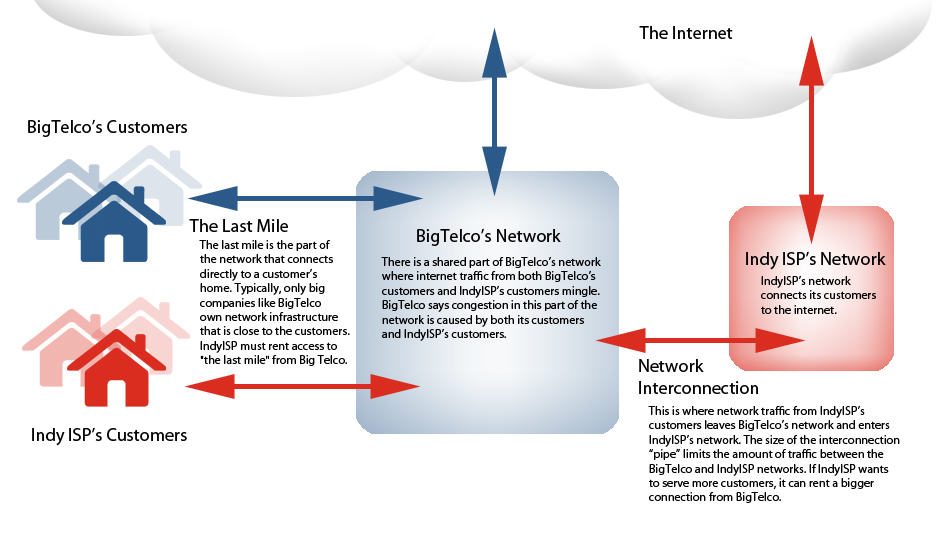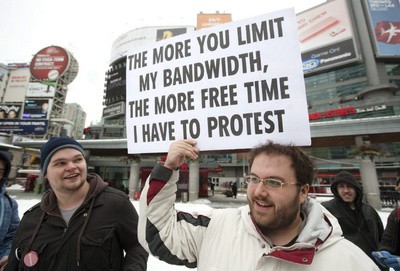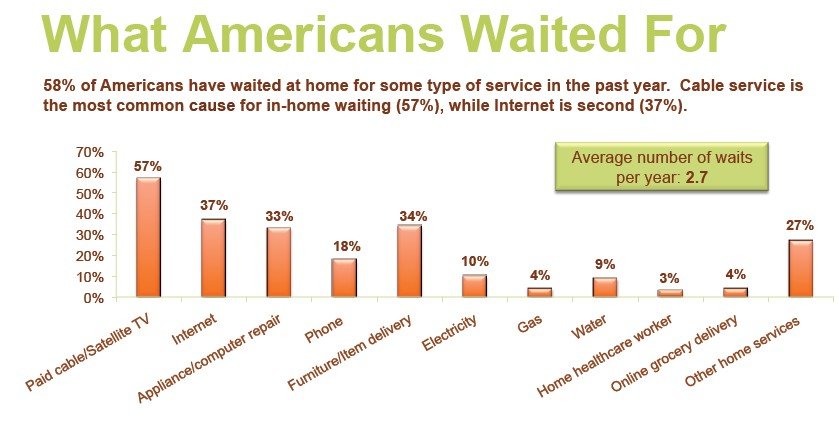 Last month, Stop the Cap! shared with you the inside story of the ABC Plan — a self-serving attempt by large phone companies to reform the Universal Service Fund (USF) in ways that would raise phone bills and deliver favored treatment for slow speed telephone company DSL service. The FCC elected not to adopt the industry plan and cobbled together one of their own. It will still raise the cost of telephone service, and likely won’t bring broadband to every rural American who wants it, but it could have been worse.
Last month, Stop the Cap! shared with you the inside story of the ABC Plan — a self-serving attempt by large phone companies to reform the Universal Service Fund (USF) in ways that would raise phone bills and deliver favored treatment for slow speed telephone company DSL service. The FCC elected not to adopt the industry plan and cobbled together one of their own. It will still raise the cost of telephone service, and likely won’t bring broadband to every rural American who wants it, but it could have been worse.
Despite the reforms, the challenges to deliver rural broadband remain serious. In these out of the way communities, cell phone service is hit or miss, cable television is nowhere to be found, and the community looks to their independent local phone company for just about every telecommunications service they can buy.
In areas deemed unprofitable for even voice telephone service, co-op phone companies are commonplace. So are family-owned and operated private providers. These small providers don’t just exist to make money. They are one-part community service, one part cover-your-costs to keep the lights on. Without support from the USF, many of these companies could never have sustained their operations, much less expand into broadband. So in a world of AT&T, Verizon, and CenturyLink, there are rural phone companies like Bevcomm, Valley Telephone Cooperative, Volcano Communications, Blackfoot, and Grand River Mutual Telephone that are expanding broadband in places larger companies would never think of serving. While some of these companies supported the ABC Plan, the rural telephone associations that helped underwrite the Save Rural Broadband campaign also had a plan of their own to protect these small phone companies.
Over the next several days, you can get an inside look at each of these communities and the providers that serve them. They are the rural phone companies that deliver the innovation so many larger phone companies forgot.
[flv width=”640″ height=”380″]http://www.phillipdampier.com/video/Save Rural Broadband California.flv[/flv]
Learn how people in Amador County, California rely on broadband services from Volcano Communications. Cell phone service is non-existent and without telecommunications service like broadband, economic growth in the community would be seriously challenged. (6 minutes)


 Subscribe
Subscribe






